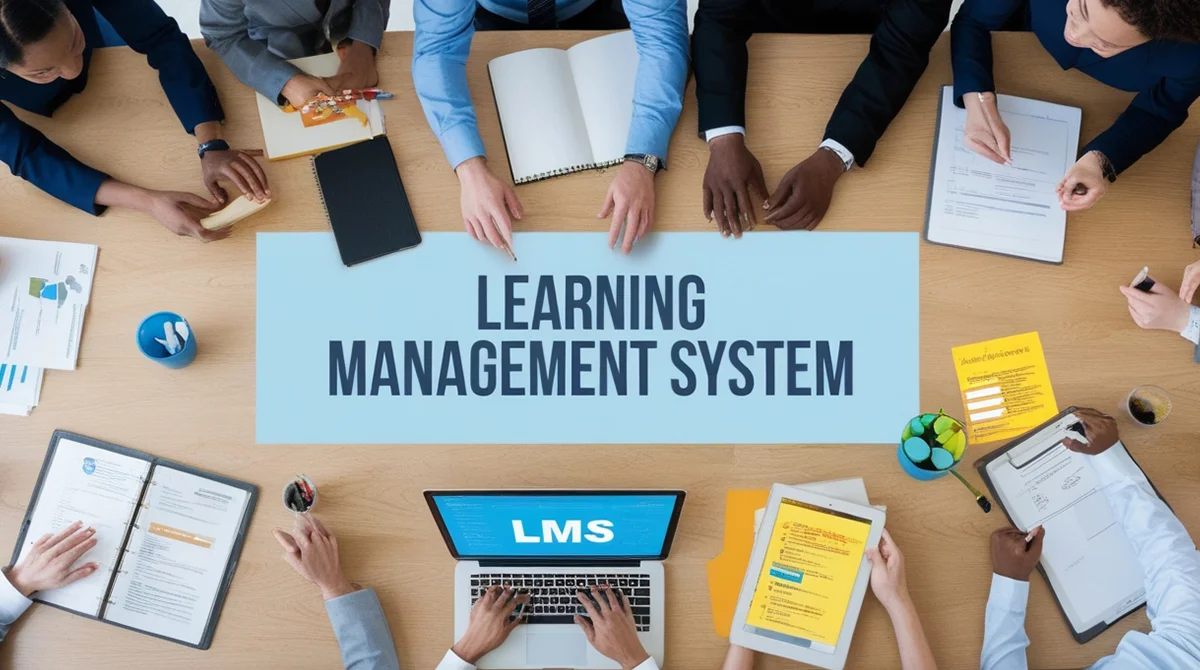In today’s fast-paced, digital-centric world, organizations are constantly seeking efficient ways to deliver training, improve employee engagement, and track development progress. A Learning Management System (LMS) offers a solution that addresses these needs and more, providing a centralized, scalable, and effective tool for managing educational content and training initiatives within an organization.
Understanding a Learning Management System (LMS)
What is an LMS?
A Learning Management System (LMS) is a digital platform designed to create, manage, distribute, and track learning and development programs. It enables companies, schools, and training institutions to host, organize, and monitor online courses, resources, and assessments in a cohesive and structured way.
An LMS supports a range of learning activities, including online training, virtual classrooms, quizzes, certifications, and analytics, making it an ideal tool for both structured and flexible learning environments. Whether used to onboard new employees, develop professional skills, or provide compliance training, LMS solutions make learning accessible, efficient, and measurable.
Why Organizations Are Turning to LMS Platforms
An LMS allows organizations to consolidate their training efforts, moving from scattered resources to a single, integrated platform. It also offers employees a flexible learning experience that they can access on their own schedules, from any device, thus promoting continuous professional growth.
Key Benefits of a Learning Management System
An LMS offers numerous advantages that support an organization’s growth, employee development, and operational efficiency. Below are some of the most important benefits of a learning management system.
1. Centralized Learning Platform
An LMS centralizes all learning materials, making it easy to access, manage, and update resources. This centralization means that learning materials can be consistently delivered across the organization, ensuring every employee receives the same quality of education and training. A centralized platform also streamlines the process of updating training materials, allowing administrators to make real-time adjustments as industry standards or organizational policies change.
2. Cost Savings and Efficiency
Implementing an LMS can reduce the costs associated with traditional in-person training. Expenses related to travel, venue booking, printed materials, and instructor fees are minimized or eliminated. Furthermore, an LMS allows for automated training processes, reducing the time and effort needed to plan, deliver, and assess training sessions. This cost-effectiveness is a significant advantage for organizations, particularly those looking to scale their training programs.
3. Flexible and Accessible Learning
One of the key benefits of a learning management system is its flexibility, enabling employees to access training materials from anywhere, at any time. Whether employees are working remotely or in different time zones, they can access resources according to their own schedules. This flexibility supports better work-life balance and encourages a culture of continuous learning by making educational resources available around the clock.
4. Consistent and Scalable Training
An LMS enables organizations to offer consistent training to all employees, regardless of their location or department. The platform can accommodate a wide range of learning needs and scale as the organization grows. As new employees join the company, they can quickly access the same onboarding resources as others, ensuring a consistent understanding of company policies and procedures.
Moreover, LMS solutions can handle a large number of users, which is especially beneficial for organizations with a growing workforce. It supports scalability, meaning it can grow alongside the organization without compromising the quality of training.
5. Customizable Learning Experience
Most LMS platforms allow administrators to tailor the learning experience to meet the organization’s specific needs. From creating company-specific courses to setting up individual learning paths based on employees’ roles and skill levels, an LMS provides high levels of customization. This adaptability enhances relevance, ensuring that each employee receives training that aligns with their professional development goals and the organization’s objectives.
6. Enhanced Tracking and Reporting
Tracking employee progress and assessing the impact of training programs is critical for organizational success. LMS platforms come equipped with reporting and analytics tools that provide insight into various aspects of training, such as completion rates, assessment scores, and engagement levels. With real-time data and insights, managers can identify areas of improvement, make data-driven decisions, and optimize training initiatives to better meet the organization’s goals.
7. Improved Employee Engagement and Retention
When employees feel that their organization is invested in their growth and development, they are more likely to stay engaged and loyal. An LMS can include features such as gamification, social learning, and interactive content that boost employee engagement. Employees who are actively engaged in their learning are more likely to apply new skills to their roles, contributing to improved job satisfaction and retention.
8. Compliance Management
Many industries require companies to adhere to specific compliance standards, such as data protection, safety protocols, or regulatory guidelines. An LMS enables organizations to automate compliance training and ensure all employees have access to necessary resources. By providing ongoing training and certifications, an LMS helps organizations maintain compliance, minimize risks, and avoid costly penalties.
9. Personalization and Learning Pathways
An LMS can adapt to each employee’s unique learning needs, offering personalized learning pathways based on their progress, goals, and competencies. Personalized learning improves the effectiveness of training by allowing employees to focus on areas that require development, rather than repeating familiar content. This targeted approach enhances the overall learning experience and boosts employee motivation.
Choosing the Right LMS for Your Organization
Key Considerations for an Effective LMS
Selecting the right LMS requires careful consideration of factors such as user-friendliness, scalability, customization options, and support features. The LMS should be intuitive and accessible, allowing employees to navigate it with ease. Additionally, the system should offer features like content management, mobile compatibility, analytics, and integration with other software tools used by the organization.
Popular LMS Platforms
There are numerous LMS platforms available, each offering unique features tailored to different types of organizations. Platforms like Moodle, Canvas, and TalentLMS are well-regarded for their ease of use, customizable features, and robust analytics. Evaluating the needs of your organization and conducting a thorough comparison of available platforms will help you make the right choice.
Conclusion
Implementing an LMS can be a transformative move for organizations looking to enhance training efficiency, improve employee engagement, and promote professional growth. The benefits of a learning management system range from cost savings and accessibility to enhanced tracking and engagement, making it a valuable asset for organizations across various industries. By choosing the right LMS and tailoring it to your organization’s needs, you can create a structured, impactful learning experience that supports both employees and organizational goals.



